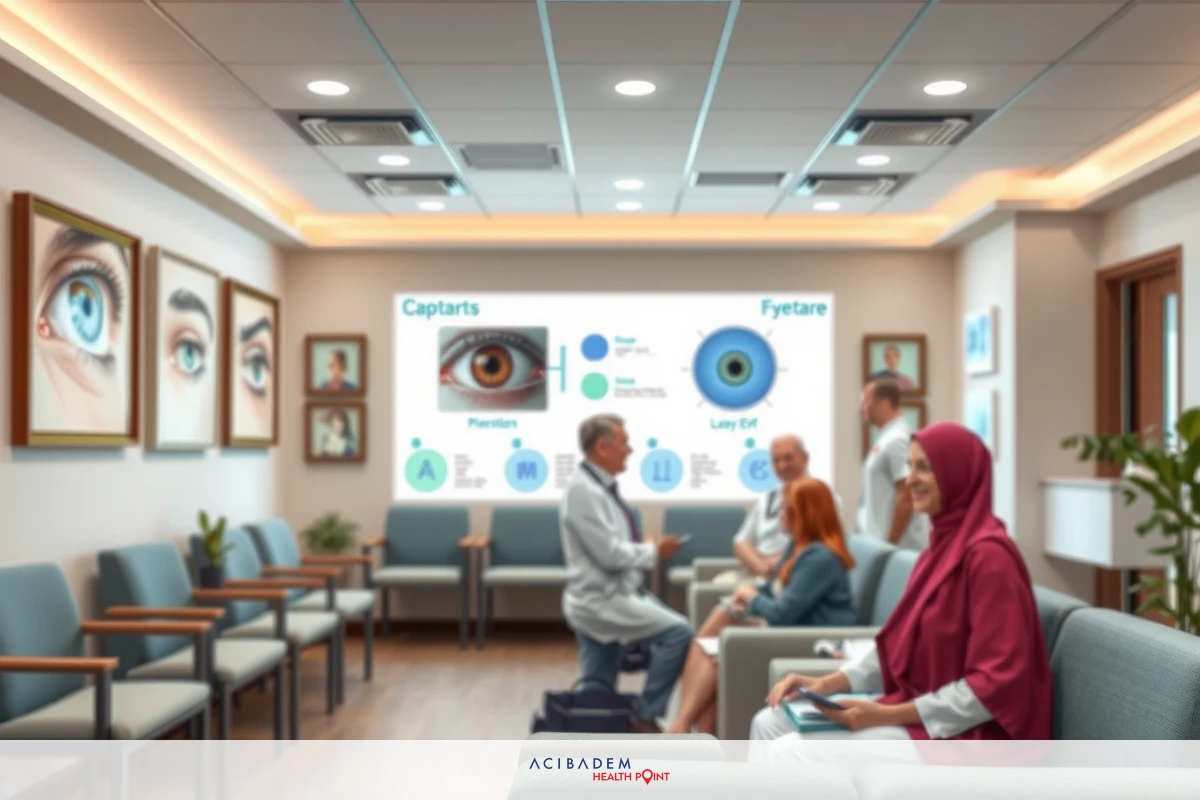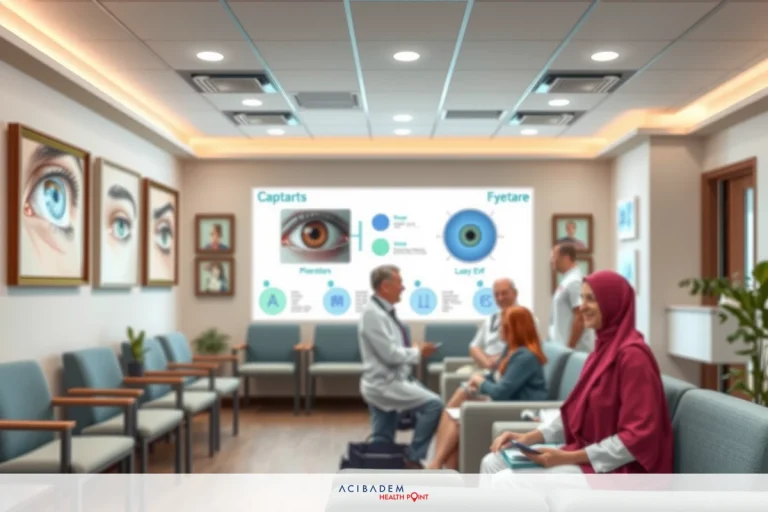Can You Have LASIK Eye Surgery If You Have Cataracts
Can You Have LASIK Eye Surgery If You Have Cataracts Cataracts often present a visual challenge, clouding the natural lens of the eye and impeding clear vision. This condition can make everyday tasks such as reading or driving particularly difficult. In contrast, LASIK is a commonly sought-after solution for refractive errors like myopia, hyperopia, and astigmatism.
Yet, do these two conditions intersect? That is – if cataracts are present in an individual’s eyes, does this preclude them from undergoing LASIK surgery? It’s certainly worth examining whether eligibility for this popular form of vision correction extends to those grappling with cataract-related vision impairment.
The nuances between these ailments along with potential treatment options will arm you with knowledge to make informed decisions about your eye health. Considerations need to be taken into account when contemplating eye surgery; each case is unique and should be discussed thoroughly with healthcare professionals before making any decisions.
What is Cataracts?
Cataracts manifest as a clouding of the lens in your eye, leading to a decrease in vision. This degenerative condition affects over half of all Americans by the age of 80. The lenses within our eyes are generally clear, allowing for light to pass through and create sharp images. When cataracts enter the picture, they disrupt this perfect clarity by forming clumps of protein that scatter light and prevent it from passing through cleanly.
As these proteins grow larger, they further obstruct light’s path to the back of your eye where it needs to be focused – causing an increasingly pervasive blurring effect on your field of vision. This is akin to looking at life through fogged-up windows or trying to discern shapes while underwater – nothing seems crisp or clear anymore. It’s important not only recognizing these symptoms but also understanding their root cause can help guide treatment decisions.
As far as causes go, most cases stem from aging but there can be other triggers such as trauma or certain medications like corticosteroids that increase risk factors significantly too. People who smoke or have diabetes are more susceptible as well – highlighting a connection between overall health status and ocular conditions like cataract development.
Treatment options usually involve glasses initially when visual disturbances aren’t severe enough yet warrant surgery; if left unchecked eventually surgical intervention becomes necessary because no medication treats cataracts effectively currently nor reverses its progress once started despite ongoing research efforts into potential drug therapies down line aiming change this bleak reality someday soon hopefully!
LASIK Eye Surgery Explained
LASIK stands for Laser-Assisted In Situ Keratomileusis, a type of refractive eye surgery that can correct common vision problems such as myopia (nearsightedness), hyperopia (farsightedness), and astigmatism. By reshaping the cornea – the clear front part of your eye – light entering the eye can be properly focused onto the retina, leading to clearer vision. This procedure is fast and minimally invasive, with most patients experiencing significant improvements in their vision.
Underneath this protective layer lies what we call stroma where actual reshaping work takes place; it’s here our high-precision excimer laser comes into play! It emits cool ultraviolet beams remove microscopic amounts tissue per second allowing us tailor treatment each person’s unique visual requirements giving them best possible outcome post-surgery.
Post-procedure care involves regular check-ups ensure healing going plan along strict adherence prescribed

medication regimen prevent infection promote optimal recovery times generally reported within few days although full stabilization might take couple months some cases longer even especially those severe initial prescriptions prior undergoing LASIK. But fear not patience pays off end when one wakes every morning able see world new light sans corrective lenses!
LASIK has revolutionized field ophthalmology its ability provide quick yet lasting solutions millions worldwide seeking freedom glasses contacts alike thereby improving quality life immeasurably way unimaginable just few decades ago before advent this groundbreaking technology.
Eligibility for LASIK with Cataracts
Cataracts and LASIK surgery address different problems. Essentially, cataracts affect the eye’s natural lens while LASIK corrects the cornea’s shape. So what happens when these two conditions collide? Can an individual with cataracts opt for LASIK surgery? In short, it depends on the progression of your cataract condition and should be a decision made in consultation with your healthcare provider.
In cases where advanced present leading visual impairment severe enough interfere daily life activities then priority must given treating first before contemplating any forms correction like indeed even after successful removal new improved clarity could reveal underlying were masked earlier by clouded lenses revealing true extent pre-existing necessitating further treatment subsequently ensure optimal outcomes patient overall wellbeing perspective.
Therefore eligibility highly dependent upon individual circumstances requires comprehensive assessment part skilled ophthalmologist who can provide tailored advice based unique needs preferences alongside consideration potential risks benefits associated each option thereby empowering patients make informed decisions regarding their own health care journey towards achieving better quality vision ultimately enhancing life experience every aspect imaginable through gift clear sight. It serves underline importance regular check-ups proactive approach maintaining good eye hygiene practices prevention always best cure age-old adage goes!
Frequently Asked Questions
Can I undergo LASIK surgery if I have cataracts?
The answer is not clear-cut as it largely depends on the progression of your cataract condition. If you have early-stage cataracts that aren't significantly affecting your vision, you may still be a candidate for LASIK to correct refractive errors such as nearsightedness or farsightedness.
Will LASIK stop the progression of my cataracts?
Unfortunately, no. While LASIK can successfully correct refractive errors and improve vision, it does not treat or slow down the progression of cataracts.
Can I get cataract surgery after having had LASIK?
Yes, individuals who've previously undergone LASIK can still opt for cataract surgery should they need it down the line. However, it's important to inform your surgeon about your past eye surgeries so they take that into account when performing their calculations for intraocular lens implantation.
Is there any risk involved in undergoing both procedures (LASIK and Cataract Surgery)?
As with any surgical procedure, both carry potential risks such as infection or complications during recovery. Each case is unique hence individual results could vary necessitating thorough consultation with healthcare provider before making informed decision regarding same.








